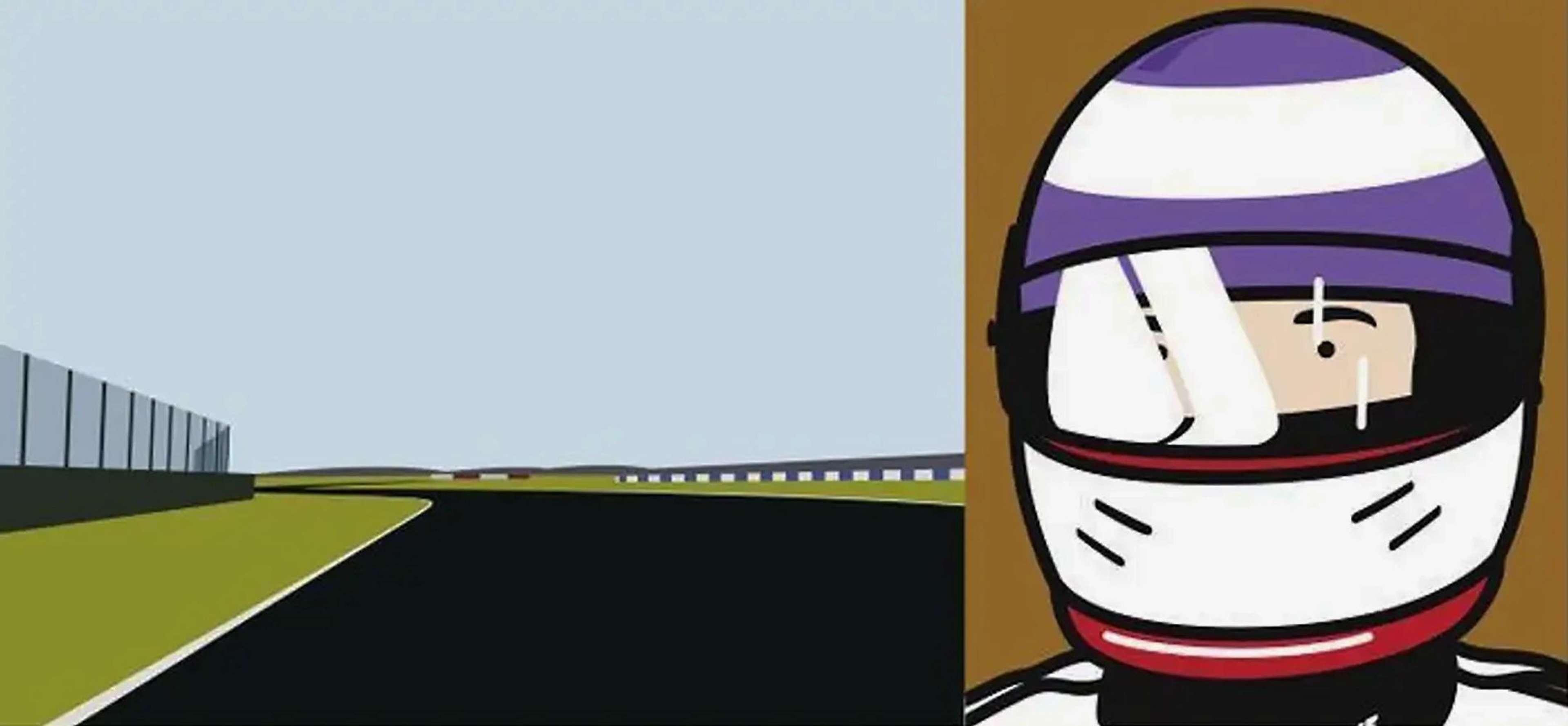Imagine You Are Driving (Fast) /Olivier/Helmet
Imagine You Are Driving (Fast) /Olivier/Helmet
Signed Print
Julian Opie
£2,500-£3,700
$5,000-$7,500 Value Indicator
$4,600-$7,000 Value Indicator
¥23,000-¥35,000 Value Indicator
€2,850-€4,200 Value Indicator
$26,000-$40,000 Value Indicator
¥530,000-¥780,000 Value Indicator
$3,350-$4,950 Value Indicator
There aren't enough data points on this work for a comprehensive result. Please speak to a specialist by making an enquiry.
56 x 120cm, Edition of 40, Digital Print
Auction Results

Track auction value trend
Meaning & Analysis
Imagine You Are Driving (Fast)/Olivier is a print from Julian Opie’s Imagine You Are Driving (Fast)/Olivier series from 2002 that shows a portrait of the famous Formula 1 driver Olivier Panis. Alongside the portrait is a dramatically flat image of a racetrack, presumably from the perspective of the driver, Panis. The portrait of Panis is rendered in Opie’s trademark linear style, reducing the sitter to his most fundamental features and is set against a flattened brown backdrop.
The racetrack image on the left of the print takes up around two thirds of the composition, and shows a vast expanse of dark, flat tarmac. Opie’s use of vanishing point and low-view perspective works to create a dramatic composition, heightened by the fact that the scene is devoid of human presence.
Imagine You Are Driving (Fast)/Olivier is exemplary of the way in which Opie combines realism and abstraction to form his unique and highly recognisable style. Notably, the reflections on the sitter’s helmet and the small details along the side of the racetrack underline the sense of realism in the print. However, Opie’s use of saturated block colour and dark, thick outlines work to pare-back the images to the point of depersonalisation and abstraction.
